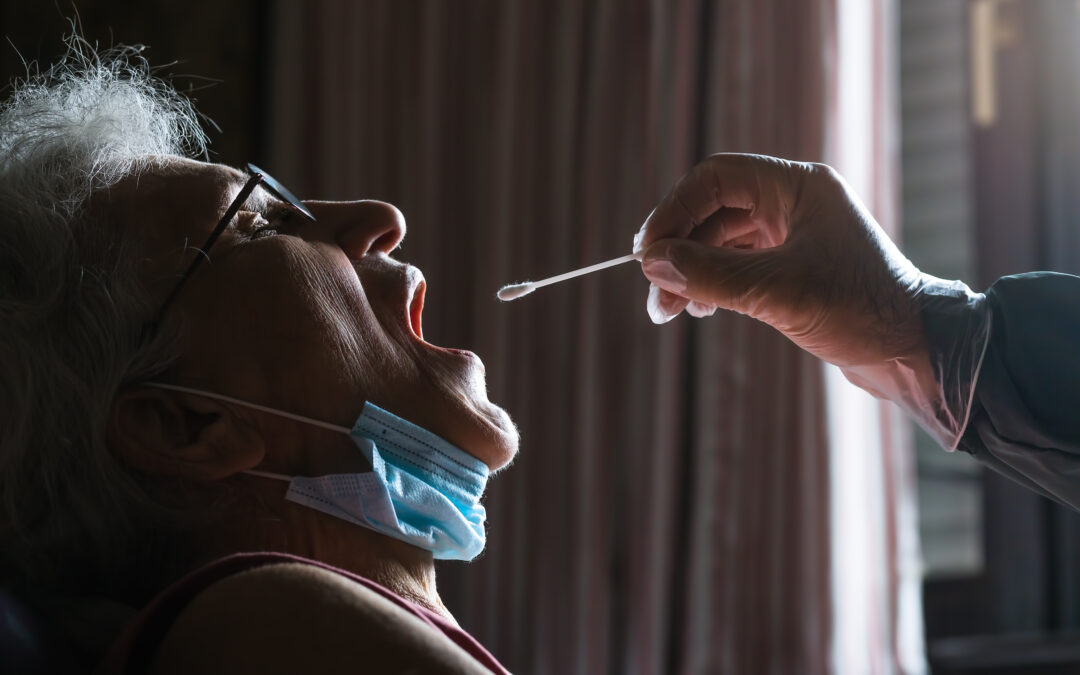New Jersey Nursing Homes Were Unprepared for Covid, and They Aren’t Ready for the Next Public Health Emergency, Says Report
A state Department of Health directive about readmitting Covid-19 patients to New Jersey nursing homes from hospitals confounded operators, says a new independent report, and that confusion might have allowed for the spread of Covid-19 among New Jersey’s most vulnerable residents.
A recently released independent report on New Jersey’s Covid-19 response says the state was unprepared for the Covid-19 pandemic that ravaged New Jersey nursing homes, and it remains at risk for the next public health threat, according to a NJ Spotlight News article. While Governor Phil Murphy reviews its 33 recommendations to address the state’s shortcomings, the report brings to light why New Jersey nursing homes were unable to prevent the death of over 16,250 people in nursing homes through March 2022.
According to the article, New Jersey’s Covid-19 response in nursing homes was characterized by inconsistencies and confusion, primarily regarding the interpretation of state Department of Health directives. One such order, given on March 31, 2020, was that nursing homes should accept from hospitals discharged nursing home residents with Covid, provided they could be safely isolated. A third of the state’s nursing homes reported they did not have the personnel, protective gear, or other resources to admit Covid patients. But by the time the NJDOH revised the policy to prohibit admissions except for facilities capable of meeting strict infection-control guidelines, Covid had already begun its rapid spread in New Jersey’s nursing homes.
The following circumstances hindered New Jersey nursing homes’ ability to respond to a burgeoning, rapidly changing pandemic:
- Staffing Shortages—Low nursing home staffing is frequently tied to negligent care within nursing homes and is generally considered to be nursing home malpractice. Typically nursing home neglect as the result of understaffing can lead to nursing home illnesses, injuries, and even death, which would require the intervention of a wrongful death attorney.
- Lack of Personal Protective Equipment (PPE)— According to the report, with the state’s focus on acute rather than long-term care, the majority of masks, gowns, and other PPE went to hospitals rather than nursing homes, leaving long-term staff and residents vulnerable. Typically when nursing homes fail to do their part to prevent infections and residents become seriously ill or die, nursing home malpractice has occurred and loved ones must look into a nursing home lawyer or wrongful death attorney.
- A History of Deficiencies—Some nursing homes had a history of deficiencies even before Covid. For instance, the New Jersey nursing home Andover Subacute and Rehabilitation Center, where early in the pandemic 17 bodies were found piled in a makeshift morgue, had a 1-star rating for three years in a row prior to the pandemic. An inspection by the Centers for Medicare & Medicaid Services following the makeshift morgue incident revealed the facility’s inability to provide proper infection control, which is a clear incidence of nursing home malpractice.
Advocating for Your Loved One against Nursing Home Abuse, Neglect, and Wrongful Death
Attorney Brian P. Murphy is dedicated to protecting the safety and preserving the rights of Pennsylvania, Philadelphia, or New Jersey nursing home residents. Your loved one living in a nursing home should not fear that their home’s negligence will result in illness or wrongful death. Attorney Brian Murphy has years of experience fighting negligent nursing homes in Pennsylvania, Philadelphia, and New Jersey. As a seasoned nursing home malpractice and wrongful death attorney, he holds accountable the Philadelphia/PA or NJ nursing homes responsible for elder abuse, neglect, and other types of nursing home malpractice. Should you find yourself needing to contact a nursing home malpractice and wrongful death attorney, or if you need guidance in choosing a nursing home, call Brian Murphy today to discuss your legal options.







